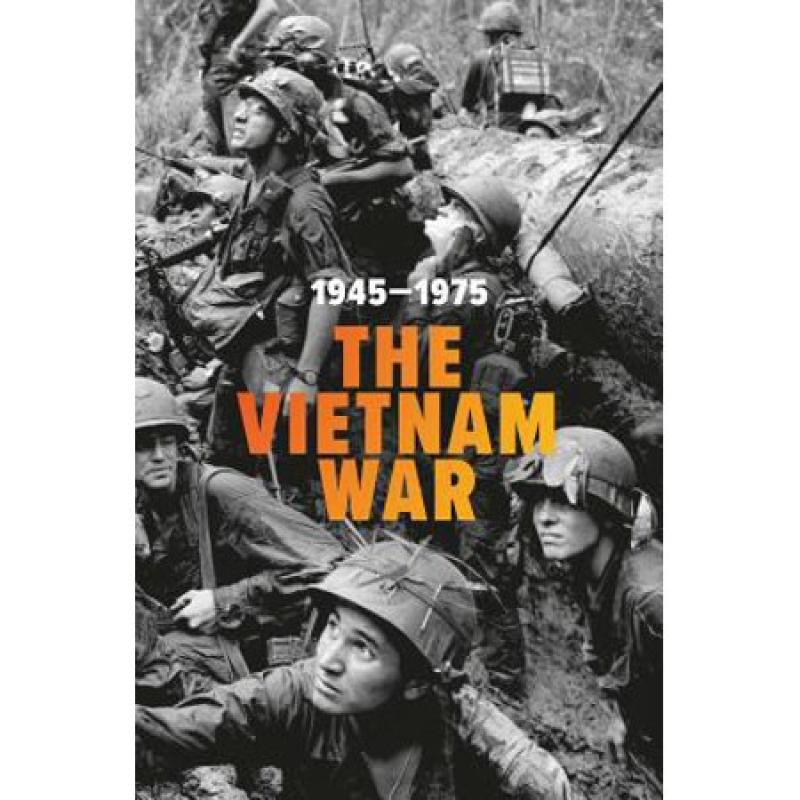How the Vietnam War Ratcheted Up Under 5 U.S. Presidents


At the end of World War II , the United States was broadly popular in Vietnam for having repelled the Japanese occupiers. Even Ho Chi Minh , the nationalist and communist revolutionary, started off pro-American. But, through the terms of five U.S. presidents, that relationship deteriorated and the United States and Vietnam found themselves at war.
Initially, many Vietnamese appreciated the anti-colonial views of President Franklin D. Roosevelt , who opposed the return of the French colonizers and who asserted in a charter that all people had a right “to choose the form of government under which they will live.” During World War II, Ho Chi Minh received arms from the CIA’s predecessor, helped locate downed American pilots and gathered intelligence on Japanese military positions.
Then, on September 2, 1945, the day of Japan’s official surrender, Ho quoted from the U.S. Declaration of Independence as part of a speech in which he implored the Allies to recognize Vietnam’s independence. He later made multiple additional attempts to get the United States on his side.
The increasing alarm over the spread of communist rule, however, would throw the U.S.-Vietnam relationship off track and eventually into war. Presidents Truman, Eisenhower, Kennedy, Johnson and Nixon oversaw the conflict, which ratcheted up in intensity as the years passed by. Though each president expressed doubts in private about American involvement, none wanted to be blamed for losing Vietnam to the communists.
The war would eventually claim the lives of more than 58,000 Americans and some 3 million Vietnamese.



All five presidents committed us in one degree or another.
The whole thing could have been avoided if as the first two paragraphs state. We would NOT HAVE INSTALLED THE FRENCH BACK IN VIETNAM AS COLONIZERS. And respected Ho Chi Mihn wishes. They were our ally in WWII and only wanted their own country back with out colonizers, be they British, French or US.
For that mistake we paid dearly as did the Vietnamese.
Agree 100% Kavika. Well stated and thanks. Those of us who were there and did the fighting and the dying were the unwitting pawns and fodder of a national policy that went steadily down the toilet as the war drew on. Many are still paying for it one way or another even today.
Sadly true Doc....One of my very best friends died from Agent Orange in 2005. He was in the ''Brown Water Navy'' in the Delta running gun boats.
Roughly 40 year later it got him.
Welcome home, Doc.
And to you my brother. More than one of my friends made themselves statistics when they put bullets in their heads from the inability to deal with things they saw and did. Almost came close myself...
Amazing that fear of “Commies” drove so much policy in general.
I see that war as an integral part of George Marshall's "Containment" strategy. The war was a failure, but it contributed to the ultimate success of that strategy.
Marshall plan, later known as the Truman Doctrine was successful in Europe. Greece and Turkey were two counties that benefited from it.
As far as Vietnam goes, the US installed the French back as colonizers. It did not take a genius to see what was about to happen. Then we doubled down after all the billions of dollars we used to back the French and their defeat, we entered the war ourselves. From that point on it was only a matter of time and lives before we left. To say it was a costly mistake is a huge understatement.
I really don't see how it contributed to the ultimate success of the strategy. Most all of the strategy was in Europe and with Vietnam being the only so called domino in Asia. One that was our ally in largest most deadly war ever known.
After the US pulled out of Vietnam the only two countries, other than Vietnam, that went communist were Cambodia and Laos.
The US invaded both Laos and Cambodia during the Vietnam war. Secretly, under Nixon.
"Containment" was the policy of blocking all advances of Communism, everywhere in the world. It was constant, through all Presidencies regardless of party, from WWII to the collapse of the USSR.
There were excesses, of which Vietnam was the most egregious. But in the end, exhausted, the Soviet Union collapsed. (The stupidity of the Maoists was a big help.)
This was "foreign policy" at its best, but as always, implementation was a bitch. The eternal problem of "enough" sliding into "too much". But it was successful.
Yes, I'm aware that it was a world wide containment and that each administration seemed to follow that, but it was always aimed at Russia. The largest communist country, China, didn't seem to be a part of the containment. When Nixon opened China, so to speak, I doubt if anyone was aware that they would become the elephant in the world. Currently Russia is dependent in someways on China and the Chinese purchase of oil and natural gas from Russia.
That is why I'm saying that the containment in Asia did not work.
I assume that you're speaking of Mao Zedong Maoists. If so please explain your comment as to their help.
As always... it's a question of criteria. "Containment", as the name implies, was not meant to "win", but to "hold the fort" until the enemy could fight no more.
Korea is a perfect example.
Nixon came late in the war. That war (French and American) consumed the energy of "Asian Communism" for two decades. That has to be considered when evaluating the "failure".
China, great world power, could have erupted ten or fifteen years earlier than it did, if Mao's Litte Red Book had not created chaos.
Did we contain communism. I don't believe that we did in Asia. Today, the most powerful country in Asia and one of the two super powers is China. Vietnam itself is fairly powerful as well.
As for Korea, if anything the US and it's allies were exhausted by the war along with both NK and China. A stalemate that has existed for 60 plus years.
Agreed
What communism didn't completely succeed in militarily they are doing economically. The US has under estimated Asia for decades. This may come home to roost.
The world is complicated. Gee....
A policy as vast and durable as "Containment" doesn't have a binary "succeeded / failed" result.
I'd say the Soviets thought it successful, overall... but they aren't talking...
Yes it is complicated Bob.
We agree on Russia but do not agree on Asia
We'll have to agree to disagree on that part of it.
Yo!
Can remember hearing from Dad and a few of his fellow flyers, as we were headed to Japan in '56, that the U. S. is "considering" sending some "Assistance" groups to Saigon to help them develop an armed force to combat the rising threats from the North. Sure enough, the Army began sending teams of "Advisors" to 'Nam later that year.
And many of the ''Advisors'' were front line combat troops that were assigned to various South Vietnamese units that were in constant combat with the north.
Advisors is somewhat of a misnomer.
There were still Advisors in 1971. I was one, with a Territorial Forces battalion at Tien Phouc, west of Tam Ky. Five or six Americans up on a hill with a couple hundred Vietnamese. The hill was overrun about six months after I rotated out. There were no Americans left when the locals were overrun..
In war, ''luck'' is a valuable ally.
Welcome home, Bob.
I knew some of the locals, of course. I do not know what became of them.